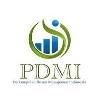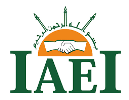The Role Of Digitalization In Zakat To Increasing Zakat Acceptance (Case Study in BAZNAS in Medan City)
Abstract
Zakat is the third pillar of Islam that every Muslim must fulfil as a form of obedience to Allah SWT and a means of equalizing income justice throughout society. Baznas as the manager of the zakat has made a breakthrough in the zakat program by utilizing digital technology, namely zakat payments that can be made online. The purpose of this study is to see how the role, implementation and influence of this digital zakat system on increasing the receipt of zakat funds at Baznas Medan City. This research method uses a qualitative approach. This research is carried out directly into the field to describe in detail certain phenomena and then analyzes them to produce descriptive data in the form of written or spoken words from people or observed behaviour. Sources of data used are primary data and secondary data. Data collection techniques and instruments are through interviews and documentation. His research shows that the digitization of zakat acts as a method of collecting zakat funds digitally, which makes it easier for Baznas and muzakki to save time and money. Moreover, to make zakat fund collection more transparent, massive, effective and efficient. The implementation of digitizing zakat at Baznas Medan is through bank transfers, websites, scanning QR codes, and social media. Then the effect of the digitalization system from the website and QR code has not been maximally felt both from Baznas and the community; this is due to the lack of socialization and promotion carried out by Medan City Baznas to the public regarding this digitization system and the existence of some people who do not have the desire to pay their zakat digitally.
Keywords: Baznas, Digitalization, Zakat AcceptanceFull Text:
PDFReferences
Aan, Ansori. "Digitalisasi Ekonomi Syariah". Jurnal Ekonomi dan Bisnis Islam. 2016.
Ahmadi Bi Rahmani, Nur. Metodologi Penelitian Ekonomi, Medan: FEBI UIN-SU Press. 2016.
Azizah, Lailan. "Penerapan Digitalisasi Untuk Perpustakaan". Jurnal Iqra. 2012.
Imsar. "Analisis Faktor-Faktor Yang Mempengaruhi Tingkat Pengangguran Terbuka Di Indonesia Periode 1989-2016". Jurnal Ekonomi dan Bisnis Islam. 2018.
Isnaini Harahap, Muhammad Ridwan. "The Handbook Of Islamic Economics". Medan: FEBI UINSU. 2016.
Jamaludin, Syakir. Kuliah Fikih Ibadah. Yogyakarta: Sutya Sarana Grafika. 2010.
Kartika Sari, Elsi. Pengentar Hukum Zakat dan Wakaf. Jakarta: PT. Grasindo. 2006.
Muhaimin. "Studi Islam Dalam Ragam Dimensi Dan Pendekatan". Cet. Ke-5. Jakarta: KENCANA. 2017.
Morrisan. Riset Kualitatif, Jakarta: Prenadamedia Group. 2019.
Nurbaiti. "Sistem informasi Keuangan/Perbankan", Medan: FEBI UINSU Press. 2019.
Mutia. "Teknologi Dalam Al-Qur'an", Jurnal Islam Futura, 7. 2008.
Nasution, Muhammad Irwan Padli, et.al. "Face Recognition Login Authentification For Digital Payment Solution At Covid-19 Pandemic". Jurnal IC2IE. 2020.
Rohimah, Afifatur. "Era Digitalisasi Media Pemasaran Online dalam Gugurnya Pasar Ritel Konvensional". Jurnal Ilmu Komunikasi. 2018.
DOI: http://dx.doi.org/10.30829/jombi.v2i1.9417
Refbacks
- There are currently no refbacks.
Copyright (c) 2021 Wandi Riyaldi Ahmad Telaumbanua, Marliyah Marliyah, Nurbaiti Nurbaiti, Razali Razali







